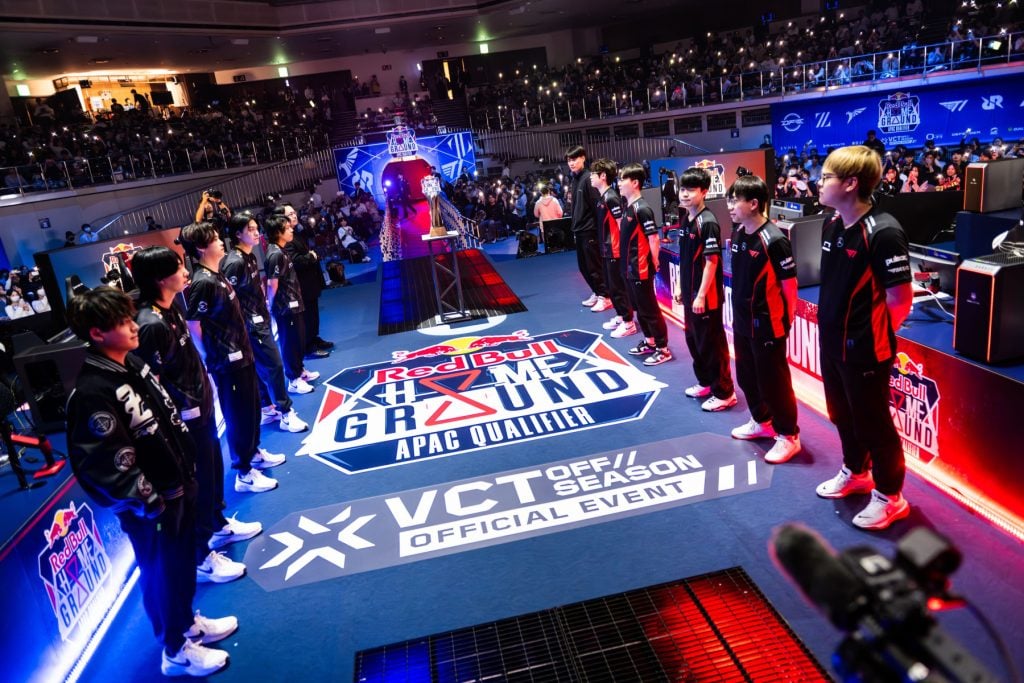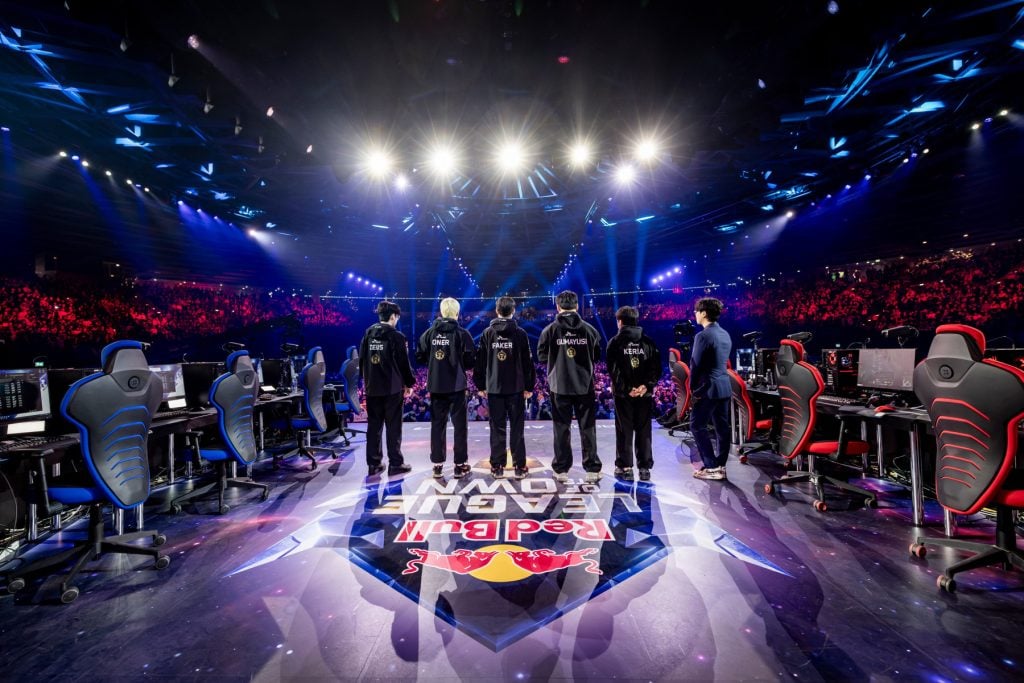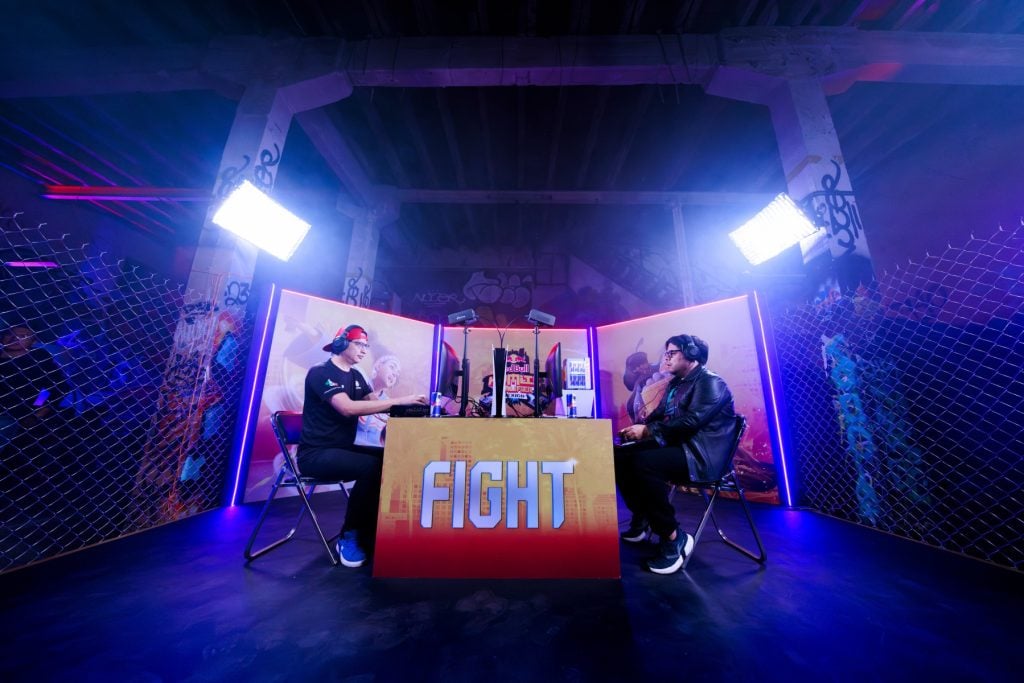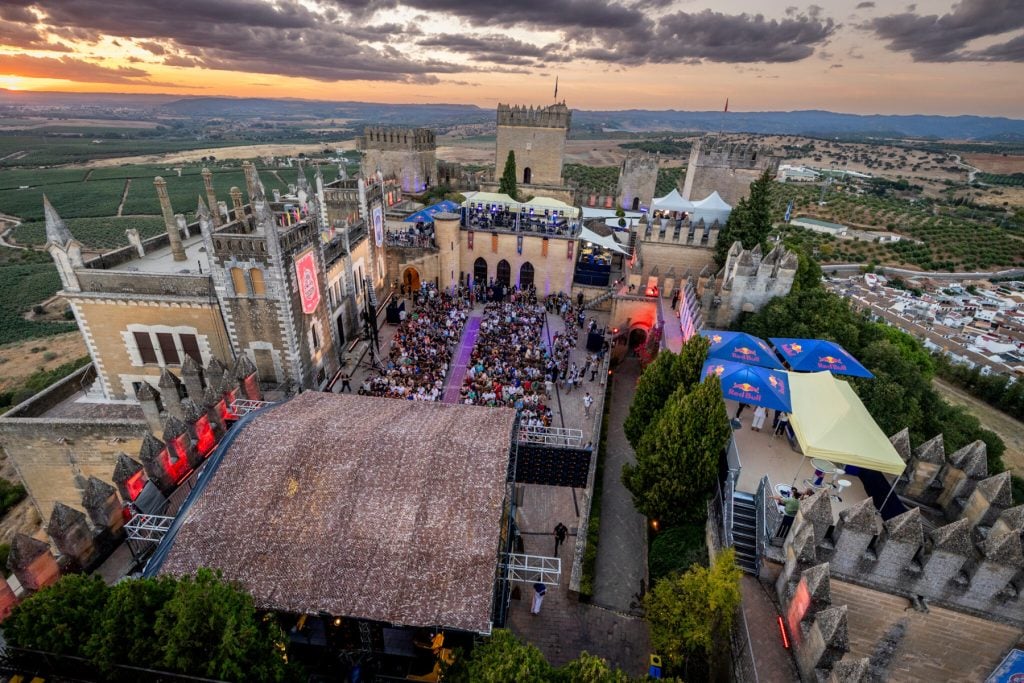
It’s no mystery that Red Bull is a major player in the world of esports.
In 2024 alone, the energy drink brand-turned-sports and entertainment powerhouse has organised or will host notable competitions in League of Legends, VALORANT, Age of Empires, Tekken 8, Street Fighter 6 and Apex Legends.
While all these titles have little in common regarding audiences and genre, all of its competitions are equally unique — complete with unusual formats that take place outside the game’s regular esports ecosystem.
Let’s take Red Bull Golden Letters as an example: this Tekken 8 tournament gets its name from two victory screens with golden fonts in the fighting game, PERFECT and GREAT. These happen when a player receives little to no hits by their opponent and it’s seen as a source of pride to win with the golden letters.
For the Tekken invitational tournament series, Red Bull decided that a special rule would be introduced that awarded an automatic victory to players who achieved the golden letters, during one single round when a match is usually composed of at least four.
To talk about utilising timing, the best example is League of its Own, a League of Legends invitational event.
As one of the most popular esports, League of Legends has created a robust ecosystem that runs throughout the year. However, there’s a time when all the major players and organisations have little to do — the off-season.
From the end of the World Championship in November, to the start of the 2025 regular season in January, top teams have significantly reduced schedules. Red Bull has taken this opportunity to host a high-production LAN invitational at the Accor Arena in France that is set to feature the likes of Karmine Corp, G2 Esports and T1. This is the second time that Red Bull has taken advantage of the League of Legends off-season with the company hosting a League of Its Own event in Germany last year.
This same method has also been used in the VALORANT ecosystem with Red Bull hosting official VCT OFF//SEASON events called Red Bull Home Ground.

Red Bull’s pattern of unusually formatted tournaments and off-season events occur across many established scenes throughout the esports calendar
Its latest addition is Legends Inn, an Apex Legends tournament that’s made specifically for duos — an esports format never experimented within EA’s battle royale. The event takes place inside a hotel in Chicago, which becomes a living scoreboard as lights in the players’ rooms turn off when they die.
The date of this competition is November 8th, two months after the ALGS: 2024 Split 2 Playoffs in Mannheim (Germany) and two months before the World Championship.
By creating new formats and hosting events in open calendar slots, Red Bull’s tournaments have found a way to make its experiences unique. Most of these competitions are one-offs or annual events, meaning that the company can play around with the rules, and most importantly, adapt to what fanbases want to see.
“I would describe Red Bull’s esports approach as organic,” Michael LaBelle, Red Bull Esports Athlete in EA Sports FC told Esports Insider. “They work with communities and athletes that understand those communities.”
Another advantage that Red Bull has when organising these events is that the company is not linked to the competitive circuit of their respective titles. As entertainment-focused events, typically the brand invites notable players to ensure a high level of competition and fan interest.

“I went to the Kumite World Finals that took place in NYC and it was incredible,” LaBelle added. “The best players flew in from around the world to meet in an actual ring in the middle of a warehouse in Brooklyn. The combined elements both locally and organically from the Street Fighter community intertwined seamlessly.
“Red Bull also set up an opportunity for players and fans a week prior to play Street Fighter in Times Square on a billboard. Red Bull is innovative and disruptive in the industry and its activations and tournaments don’t fall into the normal constraints or restrictions.”
However, there is one notable event that breaks the brand’s own rules: Red Bull Wololo. The storied Age of Empires competition has become one of the most important events in the esport’s ecosystem. Ørjan ‘TheViper’ Larsen, a veteran Age of Empires 2 player for GamerLegion, explained the event’s importance.
“The Wololo is a unique tournament because it is played on Empire Wars, a faster and more spectacular game mode for more action-packed and fun-to-watch games. Its role could not be more important because it is one of the main, if not the main tournament of the year.”

The decision to build an esports strategy that’s only for established players, however, has its drawbacks, mainly “less entry points for new competitors,” highlighted LaBelle.
In Red Bull Kumite (Street Fighter 6) and Golden Letters, for example, there are qualifiers open to the public that guarantee a spot in the play-in phase but this hardly has a perceptible outcome. “I think some sort of mix is probably best suited for competition,” said LaBelle. “As a professional, I would like my previous results and consistency to be taken into consideration with tournaments. This can get much more complicated in competitive ecosystems around different titles.”
Up until last year, there was a very open competition on Red Bull’s esports calendar, the Red Bull Campus Clutch, that saw university teams from all over the world compete in VALORANT to become champions. However, after two years of operation, the circuit didn’t return in 2024.
Red Bull has found an esports marketing strategy that works: bringing eyes to its events — and on the brand — thanks to invited teams, high production values, selected calendar timings and differing formats.
Hosting during an esports scene’s ‘dead’ period and creating unique twists seems to be the key to unlocking esports’ entertainment-focused potential. Red Bull has decided to make it its signature style for tournament organising, whilst also creating an organic and satisfying marketing campaign for the brand as a result.


